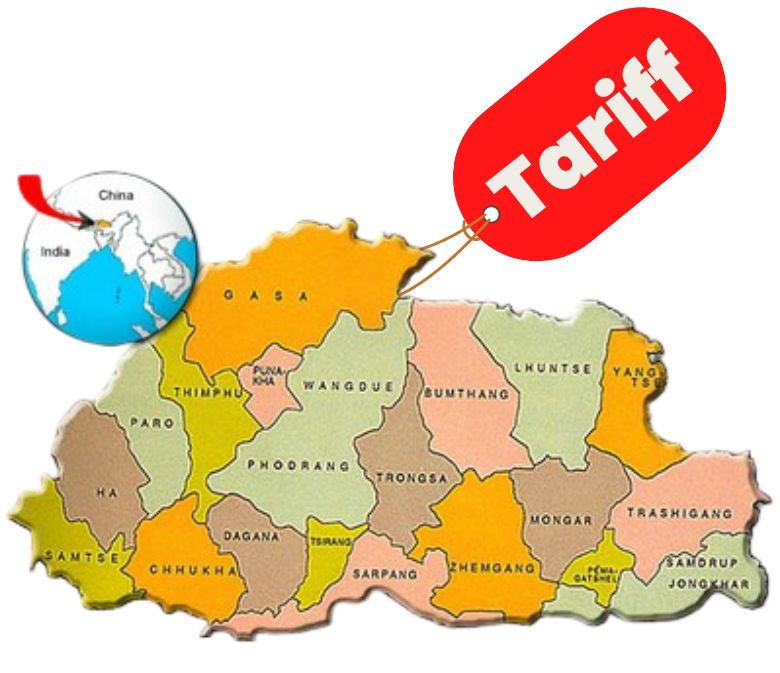Tariff Information
- A fifty percent discount shall be granted on the prevailing SDF of USD 200 for US Dollar paying tourists visiting Bhutan. The effective SDF with the discount shall be USD 100 per person per night.
- In addition, a fifty percent discount on the SDF shall be granted on the rates applied to children aged between 6 to 12 years for US Dollar paying children visiting as tourists.
- The 24-hour SDF waiver for tourists staying in the border towns shall continue.
The above incentives will come into effect from 1 September 2023 and shall remain effective for four years till 31 August 2027.
What is SDF? Bhutan, a small landlocked country in South Asia, has been a pioneer in promoting sustainable tourism through its unique policy of the Sustainable Development Fee (SDF). SDF is a mandatory fee that every tourist visiting Bhutan has to pay. SDF is USD 100 per night, per person and this fee does not cover the actual cost of travel. This means a traveler will pay USD 100 per night as SDF/royalty and pay additional for the actual travel cost, such as the cost of accommodation, meals, transportation, and an official guide. The accommodation provided is usually in three-star hotels, but visitors can upgrade to four or five-star hotels at an additional cost. The meals provided are usually buffet-style, and they include both Bhutanese and international cuisine. The transportation provided is usually in comfortable SUVs or buses, depending on the size of the group.
SDF was introduced in Bhutan as part of its policy to promote sustainable tourism. The concept of Gross National Happiness (GNH), which is Bhutan’s development philosophy, underpins the SDF policy. GNH is a holistic and sustainable approach to development that emphasizes the importance of balancing economic growth with social and environmental well-being. SDF is one of the ways through which Bhutan implements its GNH philosophy.
Details about the impact of SDF on Bhutan’s economy, environment, and society
SDF has had a positive impact on Bhutan’s economy, environment, and society. Some of the impacts of SDF include:
Economic impact: SDF has contributed to the growth of Bhutan’s tourism industry, which is one of the main sources of revenue for the country. The revenue generated from SDF is used to support various sustainable development projects in Bhutan.
Environmental impact: SDF has helped to promote sustainable tourism practices in Bhutan, which has led to the preservation of Bhutan’s natural resources and biodiversity.
Social impact: SDF has helped to improve the quality of life of the local population in Bhutan through the funding of health and education projects.
Conclusion highlighting the importance of SDF in promoting responsible tourism and sustainable development in Bhutan
SDF is a unique policy that has helped Bhutan to promote responsible tourism and sustainable development. By making SDF mandatory for all tourists visiting Bhutan, the country has been able to ensure that tourism is sustainable and responsible. SDF has also helped to promote various sustainable tourism activities and public infrastructure development projects in Bhutan, which has had a positive impact on the country’s economy, environment, and society. Overall, SDF is an important policy that other countries can learn from in their efforts to promote sustainable tourism and development.


